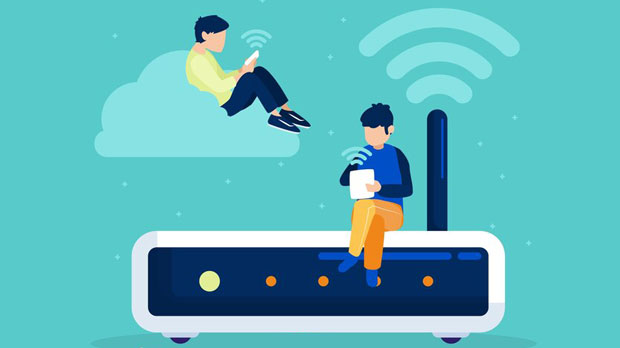In the competitive landscape of proxy services, the decision to choose between PYPROXY and Proxy Croxy comes down to a careful evaluation of their price points and the overall value offered. Both of these proxy service providers cater to a range of users, from individual consumers to large-scale businesses. However, what sets them apart is not just their pricing models but also their service offerings, features, and performance. 1. Price ComparisonThe pricing structure of a proxy service is often the first deciding factor for consumers. It not only impacts the budget but also reflects the level of service and features included. Both PyProxy and Proxy Croxy offer competitive pricing, but they differ significantly in their models.PyProxy provides flexible pricing tiers based on usage and subscription length. It offers affordable options for users who only need proxies for light or short-term usage, as well as more premium plans for businesses requiring high-speed connections and large-scale operations. The pricing is straightforward, and users can find plans suited to their needs, with the added benefit of discounts for long-term subscriptions.On the other hand, Proxy Croxy offers a more rigid pricing structure with a single monthly fee. While this simplicity is appealing to users who prefer a no-nonsense approach, it might not be the best value for users with varying needs. The monthly fee covers most of the basic features, but for advanced functionalities, additional charges apply, which can add up quickly. Therefore, while Proxy Croxy might appear cost-effective at first glance, the hidden costs can be a consideration in the long term.2. Service Offering and FeaturesPrice is important, but the real value of a proxy service lies in the quality and range of its features. Both PyProxy and Proxy Croxy provide similar basic services, such as IP rotation, location spoofing, and high anonymity. However, their additional features and performance vary.PyProxy distinguishes itself by offering a robust set of customizable features. Users can choose from different proxy types, such as residential, datacenter, and mobile proxies, depending on their requirements. The platform also provides access to specialized features such as geo-targeting, which allows users to select specific regions for proxy traffic, and a high level of control over session management, which is crucial for businesses that require reliability and speed.Proxy Croxy, in contrast, is more focused on delivering high-speed connections for general browsing and web scraping. While it offers a good range of proxies for different regions, it lacks the same level of customization seen with PyProxy. For businesses or individuals with specific needs, such as targeted marketing or web testing, the limited options in Proxy Croxy’s offerings may lead to a compromise in quality.3. Performance and SpeedOne of the most critical aspects of any proxy service is performance. Both PyProxy and Proxy Croxy boast fast connections, but there are differences in their performance reliability.PyProxy tends to offer superior performance, particularly for high-demand activities like streaming or large-scale web scraping. The ability to choose the type of proxy and access to premium networks ensures that users experience minimal downtime and high-speed connections. Additionally, PyProxy provides a well-distributed network across multiple regions, helping to reduce latency and increase overall connection speed.Proxy Croxy, while offering competitive speed, may face occasional lag or interruptions, especially during peak usage times. This is due to its more centralized network, which can struggle under high traffic volumes. For users who require uninterrupted high-speed connections for tasks such as market analysis or data scraping, this could lead to frustration.4. Customer Support and User ExperienceThe quality of customer support can significantly affect the overall user experience with a proxy service. Both PyProxy and Proxy Croxy offer support, but the level of service differs in terms of availability, responsiveness, and user-friendliness.PyProxy excels in customer support by offering 24/7 assistance through multiple channels, including live chat, email, and phone support. The user interface is also intuitive and designed to simplify the setup process, making it easier for both beginners and advanced users to configure proxies according to their specific needs.Proxy Croxy, while offering email and live chat support, does not have the same level of accessibility. Some users have reported slower response times, which could be a hindrance for businesses requiring timely solutions. Additionally, the user interface is somewhat basic and may be difficult for new users to navigate efficiently.5. Security and PrivacySecurity and privacy are paramount when using proxy services, especially for businesses or individuals who deal with sensitive information. Both PyProxy and Proxy Croxy claim to provide a high level of anonymity and data security, but there are some key differences.PyProxy emphasizes its focus on privacy by using residential proxies and providing secure, encrypted connections. This makes it an excellent choice for users who prioritize security, such as those working with sensitive data or involved in financial transactions. PyProxy’s network is also less likely to be flagged by websites, offering a higher level of anonymity.Proxy Croxy, while offering secure connections, relies more on data center proxies, which can be more easily detected by websites. This makes it less suitable for high-security tasks, as data center proxies are more likely to be blocked or flagged as suspicious.6. Conclusion: Which Proxy Service Offers Better Value?When evaluating the cost-effectiveness of PyProxy vs Proxy Croxy, the decision depends largely on the specific needs of the user. PyProxy offers a more comprehensive and customizable service with a broader range of features, higher speed, and stronger security measures, making it a better choice for businesses or advanced users with specific proxy requirements. While its pricing may be slightly higher, the additional services and customization options justify the cost.Proxy Croxy, on the other hand, may appeal to users who require basic proxy functionality for standard browsing or web scraping at a lower price point. However, for users who need more specialized features or better performance under heavy usage, PyProxy stands out as the better investment in the long run.Ultimately, while both services are competitive in terms of pricing, PyProxy offers superior value for those who prioritize performance, flexibility, and security. Proxy Croxy is suitable for more general use but may not meet the demands of high-end users or businesses with specific proxy needs.
Sep 05, 2025



































































